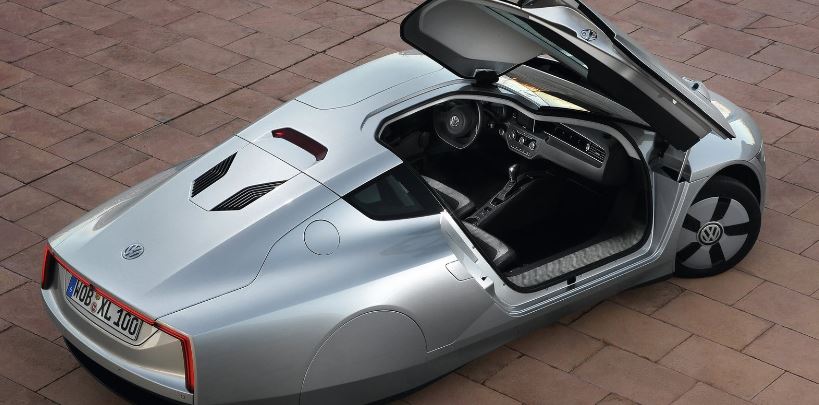The automotive industry is undergoing a profound transformation as we shift towards more sustainable and environmentally friendly transportation options. One of the most significant developments in this evolution is the rise of electric vehicles (EVs), which are challenging the dominance of traditional gasoline-powered cars. In this article, we will explore the pros and cons of electric vehicles and gasoline cars, considering factors such as environmental impact, cost, performance, and more. Additionally, we will touch upon how initiatives like Gold goast cash for cars can play a role in promoting the adoption of electric vehicles.
Pros of Electric Vehicles
- Environmental Friendliness: One of the most compelling advantages of electric vehicles is their minimal environmental impact. EVs produce zero tailpipe emissions, reducing air pollution and greenhouse gas emissions that contribute to climate change. This makes them an essential part of the global effort to combat environmental issues.
- Lower Operating Costs: EVs are more energy-efficient than gasoline cars. Electricity is generally cheaper than gasoline, resulting in lower fueling costs. Furthermore, EVs have fewer moving parts, reducing maintenance and repair expenses over time.
- Quiet and Smooth Ride: Electric vehicles are known for their quiet and smooth operation. They produce minimal noise pollution, making them a great choice for urban areas and promoting a more peaceful environment.
- Instant Torque: Electric motors deliver instant torque, providing quick acceleration and a responsive driving experience. This makes EVs enjoyable to drive and well-suited for city commuting.
- Government Incentives: Many governments worldwide offer incentives for purchasing electric vehicles, including tax credits, rebates, and access to carpool lanes. These incentives can significantly reduce the upfront cost of EVs.
- Reduced Dependence on Fossil Fuels: EVs help decrease reliance on fossil fuels, which are finite resources subject to price volatility. A shift to electric vehicles can enhance energy security and reduce the impact of oil price fluctuations.
Cons of Electric Vehicles
- Limited Range: One of the primary challenges of electric vehicles is their limited driving range on a single charge compared to gasoline cars. Although EV ranges are improving, long road trips may require more planning and charging stops.
- Charging Infrastructure: The availability of charging infrastructure varies by region. While major urban areas often have well-developed charging networks, rural or remote areas may have limited options, causing range anxiety for some EV owners.
- Longer Refueling Time: Charging an electric vehicle takes considerably longer than filling a gasoline tank. Fast-charging stations are becoming more widespread but are still not as common as gas stations.
- Upfront Cost: Electric vehicles typically have a higher upfront purchase price than their gasoline counterparts, primarily due to the cost of batteries. However, this cost difference is gradually decreasing as technology advances.
- Environmental Impact of Battery Production: The production of lithium-ion batteries for EVs can have environmental impacts, including resource extraction and energy-intensive manufacturing processes. However, advancements in battery technology are aimed at reducing these impacts.
Cash for Cars Gold Coast and EV Adoption
Initiatives like Brisbane cash for cars (unwanted junk car removal) can play a vital role in promoting the adoption of electric vehicles. Such programs encourage people to trade in their old gasoline cars for newer, more environmentally friendly alternatives like electric vehicles. By offering cash incentives or trade-in deals, these initiatives make it financially advantageous for individuals to make the switch to EVs.
The Road Ahead for Electric Vehicles
The road ahead for electric vehicle is promising. Technological advancements are continuously addressing some of the current limitations of EVs. Here are a few trends and developments to keep an eye on:
- Improved Battery Technology: Research and development in battery technology are ongoing. As batteries become more energy-dense and affordable, electric vehicles will see increased range and reduced manufacturing costs. This could help close the gap between the upfront costs of EVs and gasoline cars.
- Charging Infrastructure Expansion: Governments and private companies are investing in expanding the charging infrastructure. Fast-charging networks are growing, making long-distance travel in EVs more convenient. Innovative solutions, like wireless charging, are also being explored.
- Economic Viability: As economies of scale come into play, the prices of electric vehicles are expected to decrease further. This will make them more accessible to a broader range of consumers.
- Diverse Vehicle Options: The variety of electric vehicle models available is expanding rapidly. From compact cars to SUVs and even electric trucks, consumers will have more options to choose from to suit their needs.
- Renewable Energy Integration: As the grid becomes greener with more renewable energy sources, the environmental benefits of electric vehicles will increase. Charging an EV with clean energy further reduces its carbon footprint.
Additional Considerations
When making a decision between an electric vehicle and a gasoline car, several other factors should be taken into account:
- Environmental Impact: Electric vehicles have a lower carbon footprint over their lifetime when charged with clean energy sources. However, if the electricity used for charging comes from fossil fuels, the environmental benefits may be reduced. Consider the energy mix in your region when evaluating the environmental impact.
- Infrastructure Development: The availability of charging infrastructure is expanding rapidly, but it may not be as ubiquitous as gasoline stations yet. Assess the accessibility of charging stations in your area and along your regular routes.
- Home Charging: Many EV owners install home charging stations, making it convenient to charge overnight. This can eliminate the need for frequent public charging stops and ease concerns about range.
- Towing and Hauling: Gasoline cars often have an advantage in towing heavy loads or hauling equipment due to their longer driving ranges and quick refueling capabilities. Consider your specific transportation needs when choosing a vehicle.
- Resale Value: The resale value of electric vehicles is improving as more people recognize their benefits. However, it’s essential to research and consider the depreciation rate of the specific EV model you are interested in.
- Technology and Features: Electric vehicles often come equipped with advanced technology, including regenerative braking, over-the-air updates, and autonomous driving capabilities. Gasoline cars may offer these features too, but it’s worth comparing the technological aspects of both options.
- Driving Experience: Your preference for the driving experience can influence your decision. Some people enjoy the silence and smoothness of electric vehicles, while others appreciate the familiar sound and feel of a gasoline engine.
Conclusion
Electric vehicles have numerous advantages, including environmental friendliness, lower operating costs, and government incentives. However, they also face challenges related to range, charging infrastructure, and upfront costs. The choice between electric vehicles and gasoline cars ultimately depends on individual needs and priorities.
As we move toward a more sustainable future, initiatives like “cash for cars Gold Coast” can help accelerate the transition to electric vehicle, reducing emissions and promoting a cleaner environment for all. The decision to embrace electric vehicles is not just about choosing a mode of transportation; it’s a step towards a greener and more sustainable tomorrow.



